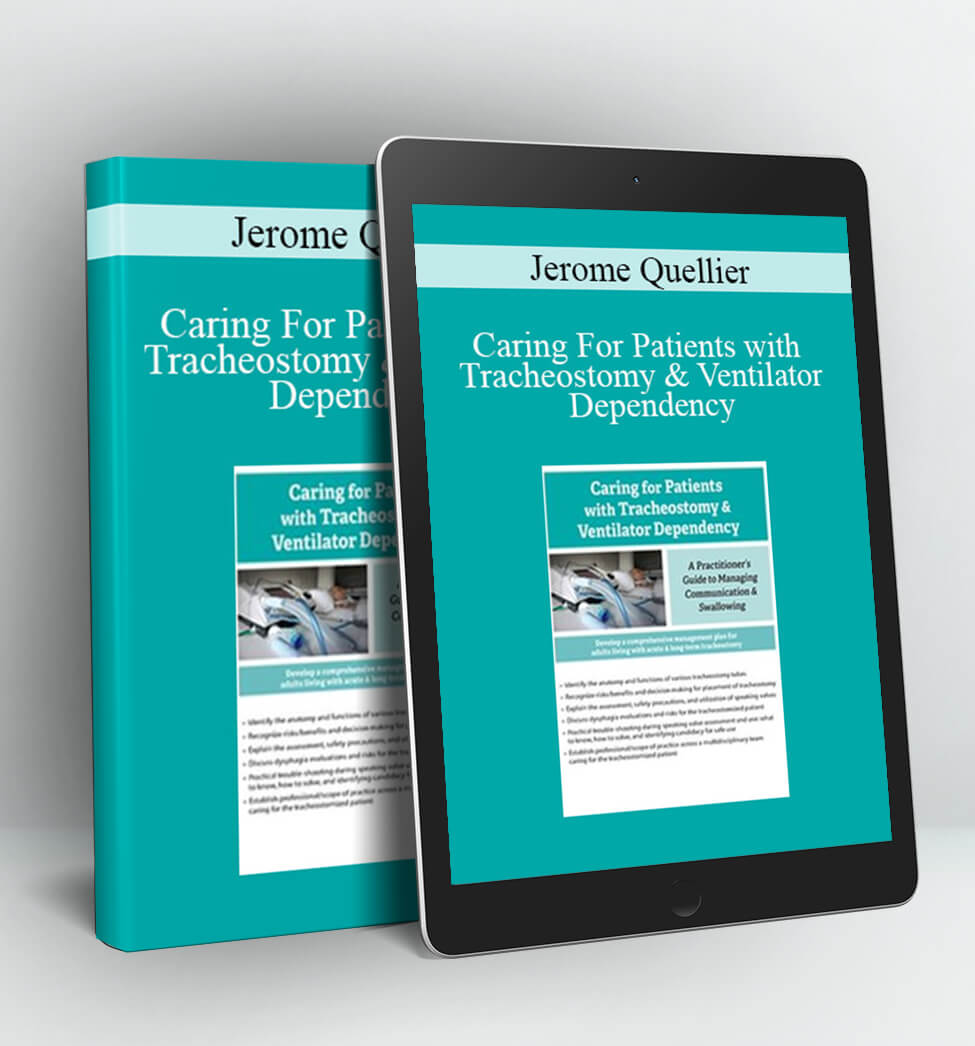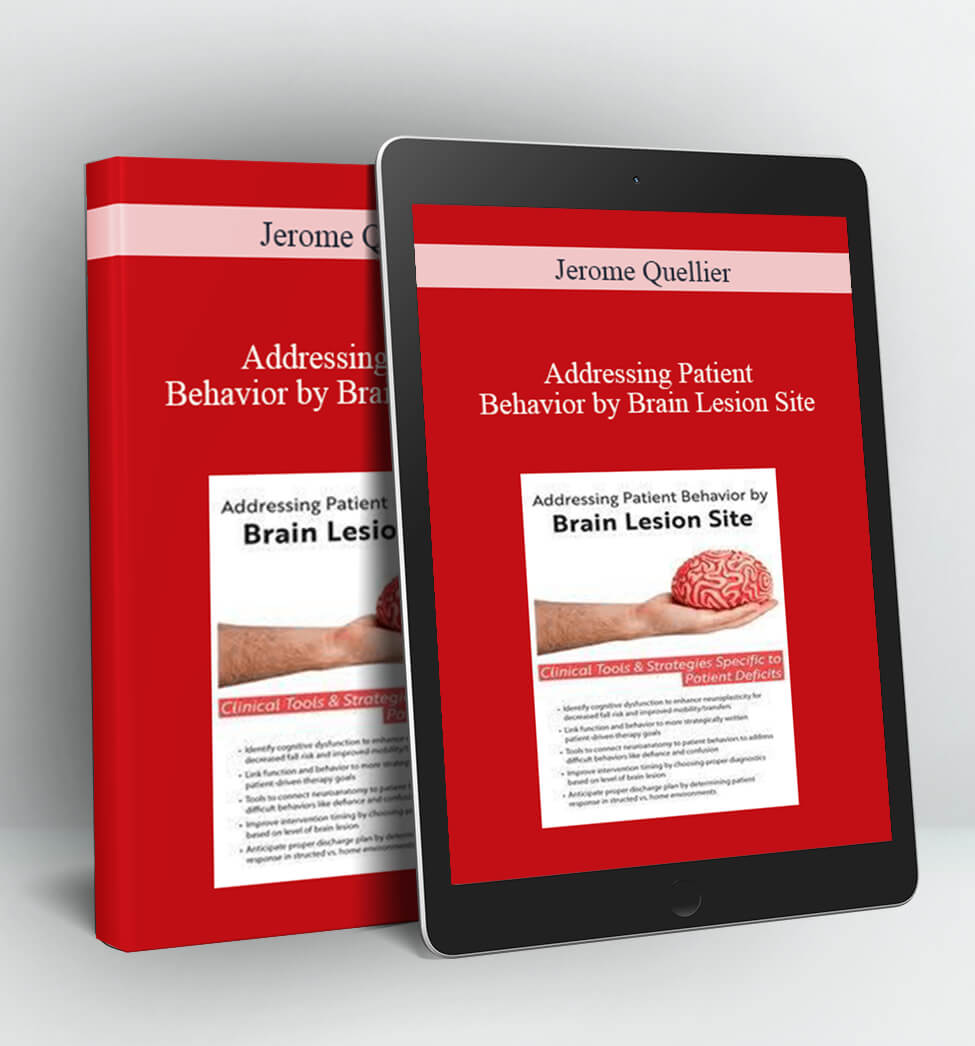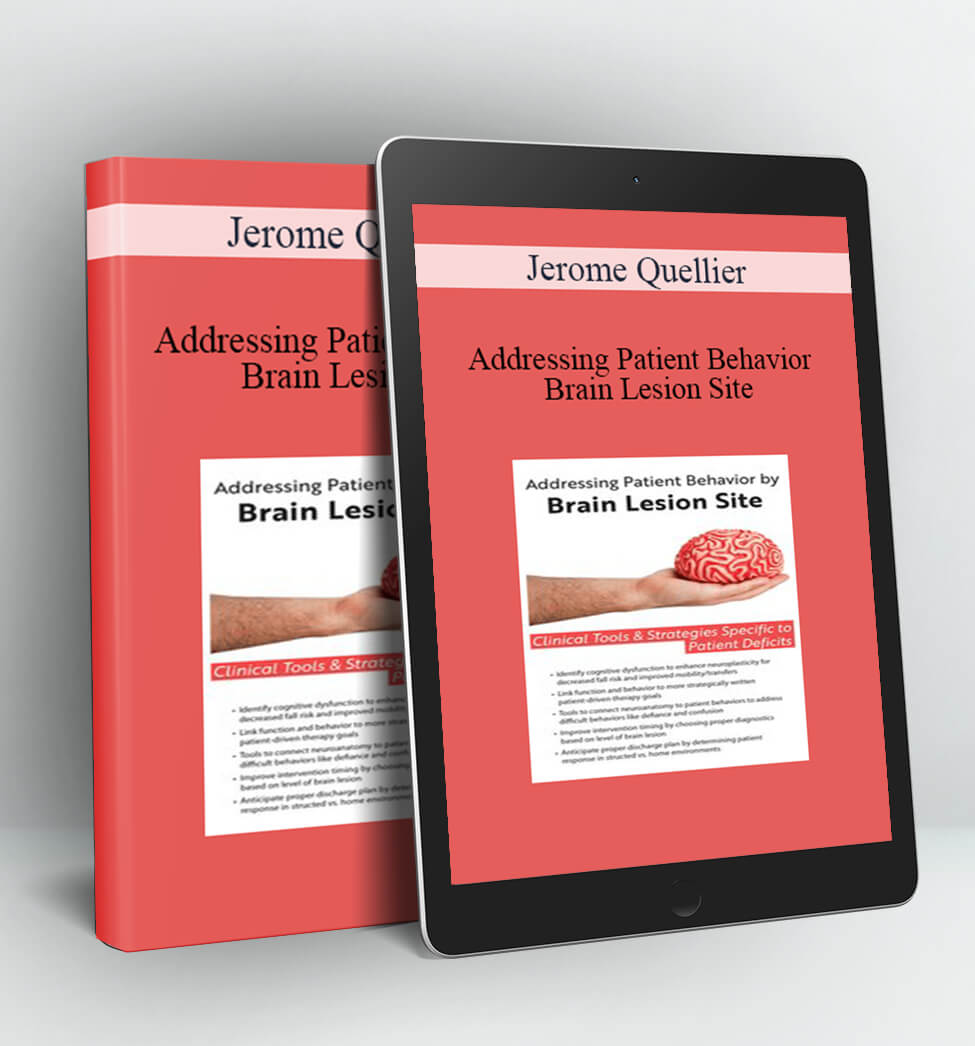Predicting Patient Behavior by Brain Lesion Site – Jerome Quellier
- Faculty:
- Jerome Quellier
- Duration:
- 1 Hour 57 Minutes
- Format:
- Audio and Video
- Copyright:
- Jul 27, 2018
Description
As patients survive increasingly complex head trauma, stroke, and various encephalopathies, there is a pressing need for practitioners to have advanced knowledge of the underlying anatomical structures that mediate behavior. Understanding the roles of the frontal lobes, hippocampus, the differences between bilateral temporal lobes, and the optic system will assist the clinician in not only predicting a patient’s cognitive dysfunction, but also guide assessment and intervention. This recording is designed to quickly review gross brain anatomy and the physiological processes that mediate self-regulation, executive functions, visual perception, and memory.
Handouts
| Manual – Predicting Patient Behavior (4.35 MB) | Available after Purchase |
Outline
Major Brain Lobes
- Location
- Function
- Influence on behavior and decision making
Neurophysiology of Memory
- Anatomy and physiology of the hippocampus and the amygdala
- The paradigm of memory
- Effect of fear/anger upon new learning and memory
The Effect of Traumatic & Non-traumatic Injuries on Cognitive Centers
- Diffuse axonal injury
- Physiologic process of nerve healing
- Ischemic vs hemorrhagic events
- Mid to high Rancho Los Amigos Levels and associated clinical behaviors
The Optic System & Lesions Locations that Affect Engagement & Accuracy in Therapy
- Outline the optic system
- Dysfunction to patient visual perception as it relates to therapy participation
- Simple environmental modifications to maximize patient performance
- Case Study
Faculty

Jerome Quellier, MS, CCC-SLP Related seminars and products: 6
Jerome Quellier, MS, CCC-SLP, is a clinical specialist in traumatic brain injury and communication disorders at a 450+ bed Level 1 Trauma hospital in Saint Paul, MN with almost 25 years of acute, residential, and outpatient rehabilitation experience. During his tenure at the hospital he has focused on neuro-based diagnostics and intervention for dysphagia, cognitive-linguistic deficits, head and neck cancer management, patient advocacy, and curriculum development. Mr. Quellier has made a career-long study of the intricacies of neurology, completed advanced training in brain dissection at Marquette University, actively engages in staff development training, and recently joined a surgery team in preserving language function during tumor resections.
In addition to his clinical practice, he has previously held a faculty position at the University of Minnesota Duluth teaching graduate level coursework, and taught undergraduate workshops as adjunct faculty at the University of Wisconsin Eau Claire. Mr. Quellier is excited to bring this topic to the forefront after working with the interdisciplinary team’s challenges in understanding the “what and why” of traumatic brain injury, stroke, neurodegenerative diseases and tumor resections as they apply to behavioral changes. He graduated Cum Laude with his bachelor’s degree and graduate degree from the University of Wisconsin Eau Claire.
Speaker Disclosures:
Financial: Jerome Quellier has an employment relationship with Regions Hospital. He receives a speaking honorarium from PESI, Inc.
Non-financial: Jerome Quellier is a member of the American Speech-Language-Hearing Association.
Access Download Predicting Patient Behavior by Brain Lesion Site – Jerome Quellier right now!
Delivery Method:
After your purchase, you’ll get access to the downloads page. Here, you can download all the files associated with your order.
Downloads are available once your payment is confirmed, we’ll also send you a download notification email separate from any transaction notification emails you receive from Vinlearn.










